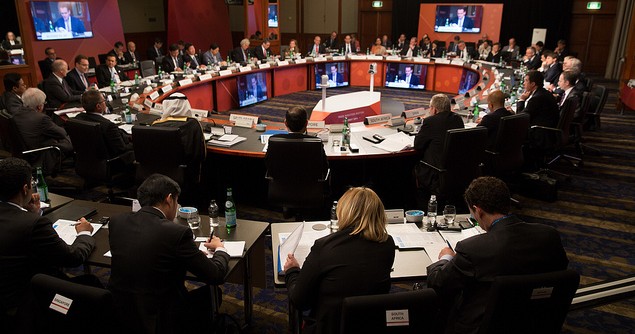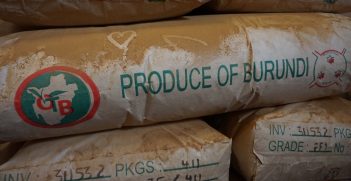Be Strong but Be Fair

A strong steady hand is vital to manage the current global economy, but with so many balls in the air, care must be taken not to marginalise emerging economies, writes Japan’s Yoshiji Nogami.
Given the tough times facing the global economy, the G20 Summit in Brisbane in November will take on a more important role than ever. As a member of the G20, Japan has high expectations of Australia’s efforts as host, in organising and running the summit.
Australia steps up
It has been clear since the start of these G20 summit meetings that global economic and financial issues constitute the most important agenda items for world leaders. Originally established as a venue for discussing measures to deal with the Lehman Shock, the summit brings together the heads of the world’s leading economic powers to steer the global economy in collaboration with the G20 finance ministers and central bank governors. Already, it is said to have contributed significantly to keeping the global economy from slowing down. Therefore, as a major player in world trade and home to the world’s earliest- opening international financial markets, Japan believes Australia is a very suitable host for the G20 Summit.
Challenges ahead
The global economy is still confronting difficulties. While the US economy is showing signs of improvement, the Federal Reserve Board needs to take a cautious approach in tapering its quantitative easing measures. Europe has returned to positive growth, but faces numerous challenges in restoring fiscal and financial stability throughout the region. In Japan, the effects of “Abenomics” have drawn attention, but our economy has yet to achieve a sufficiently strong recovery, so future directions – including Japan’s growth strategy – require close monitoring.
Garnering the most interest of all, however, are developments in emerging economies. It would be no exaggeration to say that 2014 will be a year that puts the true worth of emerging economies to the test. Because changes in funds available in the US have a major impact on the currencies of emerging countries, trade and investment in these countries also fluctuate considerably. Oil and other energy prices, too, have a direct effect on the domestic economies of emerging countries. With multilateral trade liberalisation talks in the WTO stalled, another key topic will be the importance of analysing and assessing the status of the several major FTA talks now underway. Difficult as it is at this juncture, due consideration must be given to the least developed countries, so that they will not be left out of the world liberalisation talks.
Back to basics
In view of all these circumstances, it will be crucial that leaders at this year’s summit return to the original focus of the G20’s creation and engage in frank discussions on managing the international economy. There is a need for leaders to undertake interactive discussions, not just unilateral speeches, and reach a shared sense of direction for the sustainable growth of the world economy. Japan is confident that Australia is up to the task.
Yoshiji Nogami is President of Japan Institute of International Affairs.
This is an extract from G20: Words into Action Brisbane 2014, to be published by Faircount Media in association with the Australian Institute of International Affairs in October 2014.





